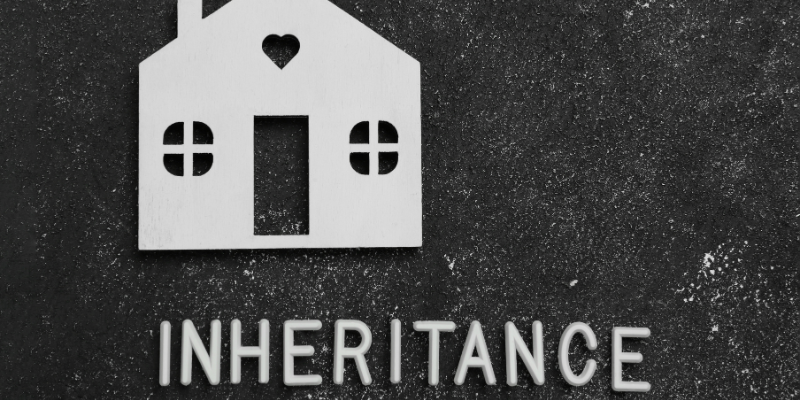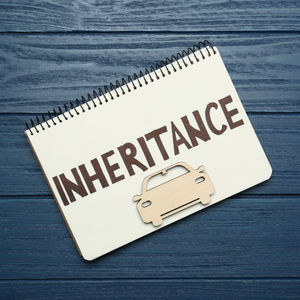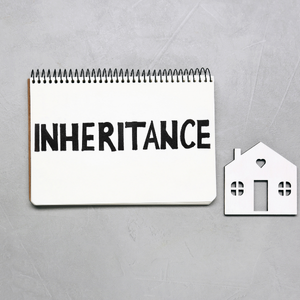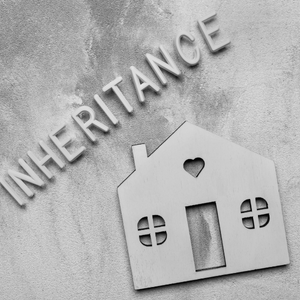
Selling an inherited house in North Carolina may be complex, given the specific laws and nuances in the local market. If this is your first time dealing with an inherited property, or if you are planning to make the selling process less complicated, this guide serves to provide you with 2025 knowledge on the subject to help you get the most value out of the property and help you sell it without complications. Zack Buys Houses will help North Carolina homeowners with anything from understanding the tax implications of an inherited property to the selling process itself. Begin with this guide to acquire straightforward, actionable advice and resources to help you make empowered, strategically sound decisions.
Understanding the Inheritance of Property in North Carolina
Owning a home requires a complex set of legal and property rights arrangements, and inheriting a property in North Carolina is no different. From a positive and a negative perspective, this will be a unique challenge. In this segment of the guide, we will explain the essentials involved in property inheritance. You will learn the basic principles surrounding the legal instructions involved in inheriting a house and the critical actions required of you. Understanding these will no doubt help an heir maneuver efficiently through the rest of the real estate market and the debts of an estate, including all the rights and implications of estate ownership.
The Basics of Inheriting Property

It is particularly pertinent for individuals inheriting real estate in North Carolina to comprehend the basic principles of property inheritance. The physical property constitutes only part of what is bequeathed to you upon inheriting a house; you also accept the debts tied to the property, including mortgage payments, taxes, and ongoing obligations for upkeep. These responsibilities must be cleared before the property can be used or sold without restriction. The inheritance procedure starts with a notice that legally designates you as an heir, after which the estate’s documentation can be examined. The distinction between real and personal property is crucial in this instance. Real property encompasses land and buildings, while personal property comprises cars and bank accounts. Due to the value of real property and the complex legal steps involved in its title transfer, additional procedures must be documented.
To manage inherited real estate, one must identify the estate planning documents, i.e., wills or trusts, that outline one’s rights and duties. Identifying and reviewing these documents early on may help avoid disputes and aid in adherence to North Carolina law. A personal representative, or executor, will manage the estate and ensure its debts are settled and its assets distributed appropriately. It is to the heirs’ advantage to maintain open lines of communication with the administrator and other heirs to facilitate the process. Finally, an assessment of the local real estate market will aid in making the critical decision to sell, rent, or hold on to the inherited property. These heirs will process the inheritance and make decisions regarding the property with the necessary planning and knowledge of the estate’s legal and financial obligations.
To navigate property inheritance successfully, consider these essential steps:
- Review and understand the will or trust documents to recognize designated heirs and property distribution.
- Obtain a legal consultation to clarify inheritance rights under North Carolina’s specific intestacy laws.
- Complete necessary probate procedures to legally transfer property titles to the rightful heirs.
- Address and settle any outstanding debts or taxes associated with the inherited property.
- Communicate transparently with all parties involved to prevent misunderstandings and disputes.
Following these steps helps manage inheritance effectively, ensuring clarity and avoiding potential conflicts.
Legal Steps After Inheriting Property in North Carolina
After inheriting property in North Carolina, it’s important to understand the legal steps to take to secure ownership and avoid complications. The first thing you need to do is settle any estate debts, whether they are mortgages, unpaid taxes, or homeowner association dues, so the title to the property is cleared. Most estates are required to go through the probate process, which is the court-supervised process of validating the estate’s will, if one exists, and appointing a personal representative to handle the estate. All estate property, including the home you inherited, is subject to probate inventory, and the outstanding debts and taxes must be paid before the property is transferred to the heirs. This is part of the legal compliance necessary to effect the desired ownership change in North Carolina.
With several heirs to a property, effective cooperation and communication are necessary, even to determine whether the asset will be retained or disposed of. All parties have to come to a consensus on the major issues to reduce the chances of conflict issues that might frustrate a settlement. Early engagement with an estate or real estate lawyer is important to help understand one’s rights and help with paperwork and identifying tax issues, such as potential capital gains and estate taxes triggered from a sale. Keeping records of all activities—debt servicing, title changes, and the probate process—helps to justify your position and maintain an adequate level of transparency. With active engagement with all of the recommended steps and with legal counsel, the heirs will be able to manage inherited property and confidently decide whether to keep or sell the property.
The Role of the Carolina Probate Process
In North Carolina, the management and final transfer of inherited property is heavily influenced by the North Carolina probate process. Anyone wanting to sell inherited property has to learn this procedure. During probate, the estate’s assets, including real property, are valued and distributed, either by the decedent’s will or under intestacy laws. This section addresses how probate affects property sales, most importantly, the timing and legal obligations to the heirs. We also examine the sale of property before the probate process is finished and offer insights to those in the probate process in North Carolina and how it relates to selling real estate.
How Probate Affects Selling Your Property in North Carolina
In North Carolina, probate proceedings determine when and how a property inheritor may sell the property. This process assesses a deceased person’s will (or distributes the estate according to intestacy laws if a will is not present) and ensures that all debts, including mortgages, taxes, and other financial responsibilities, are paid before ownership is transferred to the heirs. Since probate courts must authorize all transactions where the estate’s property is involved, the estate must first complete the probate process an often lengthy undertaking that can take anywhere from a few months to several years. The personal representative or court-appointed executor has the estate’s freehold interest and control over all real estate decisions but must always follow the court’s instructions. Interested buyers may be discouraged from purchasing during this time due to the lack of a lien-free title. This further complicates the selling process.
Estate heirs face several challenges. To successfully address these challenges, heirs should collaborate with a probate attorney who can orient them to North Carolina law and ensure that all estate obligations are dealt with. Most disputes concerning co-heirs can be resolved more quickly and in a more court-efficient manner when a lawyer is involved. Anticipating probate challenges and taking the time to study these issues, including probate law in the state and the estate plan, along with effective contact and well-prepared materials, will eliminate many bottlenecks, greatly improving the flow from inheritance to sale. Understanding the active role of banking and business law will permit them to operationalize estate management, and heirs will have firm control over their expectations and streamline the sale to avoid major obstructions, improving the sale time.
Can You Sell a Property Before Probate Is Complete?
Selling property before the completion of probate in North Carolina involves navigating a series of complex legal and procedural steps. However, it is still possible to sell your home for cash in Winston-Salem or nearby cities under certain conditions. While a property generally cannot be sold until probate is finalized, since legal ownership must be formally transferred and approved by the court, the court may authorize an early sale if maintaining the property becomes a financial strain on the estate due to taxes, mortgage payments, or upkeep. In such cases, the executor or heirs can petition the court to approve the sale, demonstrating how it benefits the estate and its beneficiaries. Engaging an experienced probate attorney is essential to ensure legal compliance, streamline court approval, and facilitate a smooth, expedited sale process when handling a house in a trust after death or other inherited property.
Not all inherited properties have to go through Luke’s probate. If the property is in a living trust, the designated trustee may sell the property without going to court, which greatly streamlines the process. Regardless of the property structure, cooperation among heirs is essential. Cooperation in the form of unanimous consent is the best way to avoid disputes that will cause unnecessary delays. An open discussion centered on the estate’s objectives will enable the personal representative to make decisions necessary to keep all parties in balance and order and will encourage the personal representative to avoid inequity among the parties. Though selling a property before probate is a complicated issue, it is achievable in North Carolina with a well-built estate, cooperation among heirs/beneficiaries, and the necessary legal framework.
| Probate Step | Timeline | Key Tasks | Involved Parties | Considerations |
|---|---|---|---|---|
| Filing | Week 1-2 | Submit the Will to the court | Executor, Court | Ensure Will is valid |
| Asset Inventory | Weeks 2-6 | Compile and value assets | Executor, Appraiser | Appraisals for all valuables |
| Debt Settlement | Month 2-4 | Pay outstanding debts | Executor, Creditors | Negotiate if necessary |
| Asset Distribution | Month 4-6 | Distribute to beneficiaries | Executor, Beneficiaries | Follow Will’s instructions. |
| Property Sale | Month 3-12 | List and sell property | Executor, Court Approval | Market conditions impact |
This table simplifies the relationship between probate procedures and property sales, reflecting how these processes influence real estate transactions.
Navigating Estate Tax and Capital Gains on Inherited Property in North Carolina
Knowing the tax implications of inherited property is crucial if you plan on selling it. Estate tax and capital gains are the primary concerns when assessing the liability of taxes owed on an inherited property. Understanding the implications of estate tax on your property and the ways to mitigate capital gains taxes will help you effectively navigate this problem. Gaining insight into these issues will provide you with the tools to efficiently and profitably manage an inherited estate and navigate North Carolina tax laws, which are particularly complex.
How Estate Tax Impacts Your Inherited Property

For larger inheritances, estate taxes will affect the value of the property inherited. North Carolina does not have state-level estate and inheritance taxes, and depending on the value of the estate of the deceased, there may be federal estate taxes. These estate taxes are applied to the estate’s value prior to asset distribution and affect only those estates over the several million dollar federal exemption. You should know how estate taxes work and determine for the inherited property whether the property will be subject to estate taxes and, for the purpose of strategic financial planning, whether there will be estate taxes. Potential federal estate taxes should be considered in the planning documents so the estate planner may balance unencumbered property against the probable future estate tax liability.
Concerning property that is subject to federal estate taxes, it is essential to work with tax disposal and legal estate planning professionals, as they can identify possible tax deductions, tax credits, or even exemptions that can eliminate or lessen taxes due on the property. Moreover, reviewing the property for possible mortgages, outstanding taxes, and other indebtedness is also necessary for obtaining a full picture of the inheritance’s true value. Record keeping, open communication among heirs and other estate participants, or informing multiple heirs about estate disposition or the tax estate in question promotes effective communication, transparency, and informed decision-making. Engaging in tax planning within the estate and working with a tax estate planner enables heirs to deal efficiently with the estate tax preservation in North Carolina so that the inherited property satisfies the estate creditors and the taxpayer’s obligations.
Strategies to Minimize Capital Gains Taxes in North Carolina
Once property is inherited in North Carolina, figuring out capital gains taxes is needed in order to understand the final proceeds. Capital gains taxes only apply to property sold for above the fair market value at the time of inheritance. Property value also resets to its market worth at the decedent’s death; value does not reset to the original purchase price. This adjustment reduces gains that become taxable. Tax liability can also be minimized by selling during a lower taxable time, using a qualified personal residence trust (QPRT), or gifting partial ownership to a family member. Taxable gains can be impacted by the current value of the property, possible improvements, and the planned timing of the sale. All of this means that effective tax planning needs to be done at the very beginning in order for gains to be maximized.
Streamlining capital gains taxes hinges upon co-heir collaboration and professional advice. Open dialogue concerning the optimal time to sell, the decision to sell or retain the asset, and the equitable distribution of the proceeds helps stave off conflicts and synchronize disparate financial objectives. Engaging tax consultants or estate planners ensures complete utilization of the deductions, credits, and exclusions permitted by the law. Given the rapid changes in tax laws, maintaining contact with your tax professional and revising your plan keeps you legally compliant while enhancing benefits. With highly informed and strategy-sustained capital gains constraints, inherited wealth can be preserved.
Practical Steps for Selling an Inherited Property in North Carolina
More than just listing a house on an inherited property listing in North Carolina, preparation and strategy are key. If you’re looking to sell your home for cash in High Point or nearby cities, having clarity on documentation, proactive planning, and awareness of potential challenges will make the process smoother. Home sellers should gather all necessary legal documents, such as the will, death certificate, and proof of ownership, and prepare a plan to address common obstacles like title issues or multiple heirs. This guide outlines the essential paperwork and proven strategies to help you navigate the complexities of selling an inherited property efficiently in the North Carolina real estate market.
Documents Needed for a Smooth Sales Process
Selling an inherited property in North Carolina requires organized documentation and careful placement in order. Failure to understand the required documentation can lead to lost time and potential legal problems during the sale. A critical document for the sale is the death certificate, which can help initiate the transfer of ownership. Along with the will or trust, which outlines how an estate is managed or passed, other estate planning documents can help determine the sale of an inherited property. These documents will help determine if any heirs can impact the sale.
Consideration of the probate process of an estate, which certifies and processes the deceased’s estate, is important. If probate is also incomplete, a court order for the sale of the property will be required. A court order providing for the transfer of ownership will also be required. You will also need the property deed, which legally describes the property, and thus, ownership is confirmed. Don’t forget the deed, especially if ownership status has changed hands through probate. This will ensure that there are no disputes in the future.
Tax papers are critical documents, too. For example, current property tax records prove that there are no outstanding property tax liabilities pending for the new owner. Furthermore, condition documents, including inspection reports, can be useful for buyers by documenting issues that need to be addressed and providing transparency. Finally, flat-fee MLS services improve market visibility and streamline the seller’s process by reaching more buyers and bypassing the full-service listing fee.
Overcoming Challenges in Selling Your Inherited Property in North Carolina

The challenges of selling an inherited property can be emotional and logistical. A decision might be difficult to make regarding a family home if an emotional attachment exists. Memories and sentiment attached to a property can diminish financial judgment. Focusing on key objectives—such as a target sale price, whether to make repairs or renovations, and a suitable timeline—will help tie emotions to pragmatic action. Settlement and preparation of estate obligations and estate preparation of the property help ensure a smoother transition between inheritance and selling.
Another potential challenge is conflict among co-heirs, which can create inefficiencies in the sale process. Disagreements on whether to sell, rent, or keep the property can create disputes between co-heirs. In any case, the parties involved in such disputes need to communicate directly and respectfully to create an agreed-upon solution. Clarifying shared responsibilities, such as maintenance costs or tax liabilities, also prevents future disputes from arising. A written agreement outlining each heir’s responsibilities and expectations can help the rest of the team stay focused, organized, and transparent.
To effectively traverse the real estate market, one must be flexible and have a strategy in place. Since conditions can change, researching the market and working with someone knowledgeable about North Carolina real estate and estate law can help to set a reasonable, competitive asking price. Consulting with seasoned agents, lawyers, or financial planners guarantees regulatory adherence as well as security on return. Sellers can be emotionally and operationally relieved of the burden created by the sale of the inherited property, provided that the sale of the property is designed to be cohesive and with optimal professional assistance, appropriately oriented in the professional market, and without negative economic implications.
FAQs
What are the initial steps to take when inheriting a property in North Carolina?
To begin, it is essential to determine any debts in the estate, including mortgages and taxes on the property. Knowledge of the legal meaning and the preparation of estate documents, such as wills and trusts, is fundamental. Such preparation minimizes conflicts and facilitates the seamless transfer of property.
How does the probate process affect selling an inherited property?
In North Carolina, the probating of a will and the settling of an estate must be done in order to close a property sale. This can take a number of months, which will postpone any sale the estate may need. Knowing the probate laws will help to avoid legal complications and facilitate the efficient transfer of the property.
Is it possible to sell an inherited property before completing probate?
As ownership rights require judicial determination, selling prior to the completion of probate is complicated. Nonetheless, if the appropriate conditions are met, conditional permissions can be issued. Exploring this option will require consultation with legal specialists.
What documents are necessary for selling an inherited property?
Weighing tax impacts on estate value, including federal estate tax and capital gains tax, is essential. In estate planning, heirs benefit from a stepped-up basis, enabling tax assessments pegged to the current market value, greatly reducing taxable gains. Considering tax impacts with tax professionals can result in valuable tax planning.
What tax considerations should be accounted for when selling an inherited property?
Weighing tax impacts on estate value, including federal estate tax and capital gains tax, is essential. In estate planning, heirs benefit from a stepped-up basis, enabling tax assessments pegged to the current market value, greatly reducing taxable gains. Consulting tax professionals about tax impacts can result in valuable tax planning.
Do you need to sell an inherited house? Whether you’re dealing with probate, shared ownership, or property maintenance challenges, Zack Buys Houses is here to help. We buy inherited homes as-is, offer fair cash offers, and handle all the paperwork to make the process quick and stress-free. Avoid costly repairs, lengthy delays, and complicated legal steps. Ready to sell or have questions? Contact us at 704-769-0141 for a no-obligation offer and get started today!
Helpful North Carolina Blog Articles
- Sell My House in Foreclosure in North Carolina
- Selling a Probate House in North Carolina
- Can You Sell a House With a Lien in North Carolina?
- How to Sell an Inherited House in North Carolina
- Sell a House with a Code Violation in North Carolina
- How to Sell a Hoarder Home in NC
- Can the Seller Back Out of a Contract in NC
- Sell Your House to the Bank in North Carolina
- Do I Need a Lawyer If I Sell My House for Cash in North Carolina
- Selling a House in a Trust After Death in North Carolina

